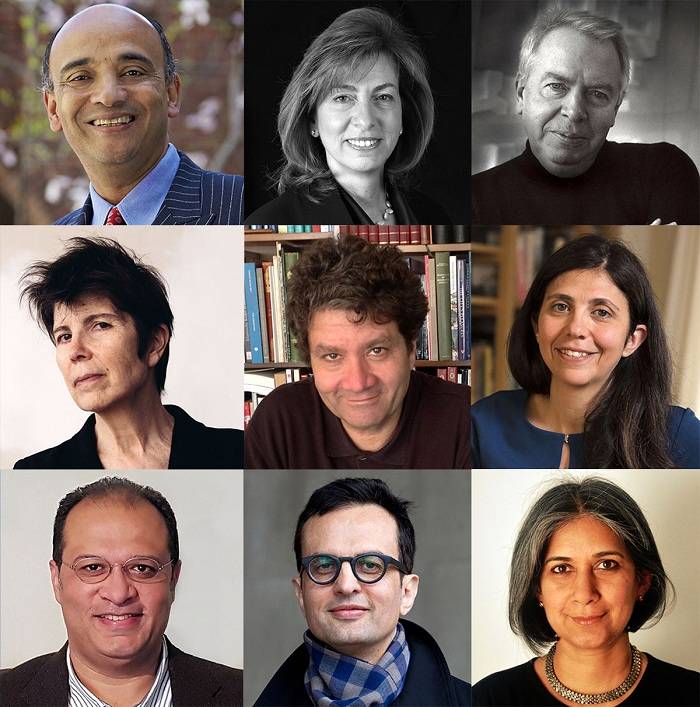

Al-Anbat
Architects and academics from Jordan, Lebanon and Egypt are amongst the nine-member Master Jury
The Aga Khan Award for Architecture has recently announced the Master Jury for the 2017-2019 Cycle. The nine-member Master Jury will independently select the winners of the US $1 million Award, and will convene in January 2019 to select a shortlist from hundreds of nominated projects, an official statement said.
The 2019 Master Jury panel is comprised of architects, urbanists, historians, academics and experts who contributed to the various fields of architecture. What make the panel unique this cycle is that it encompasses a significant number of Arab representatives. In fact, four architects and academics from Jordan, Lebanon and Egypt are amongst the nine-member Master Jury.
The four Arab members are:
Meisa Batayneh is the founder and principal architect of maisam architects & engineers, with offices in Amman and Abu Dhabi. She is engaged actively in social initiatives that are catalysts for architecture and urban design. In 2015, she was recognised as the Leading Arab Woman Architect. Over her long and distinguished career, Ms. Batayneh has led multi-disciplinary teams on large-scale international and regional projects in USA, Pakistan, Cyprus, Saudi Arabia, Egypt, UAE and Jordan, and won many regional and international awards.
Mona Fawaz is Professor in Urban Studies and Planning, the Coordinator of the Master in Urban Planning, Policy and Design, and the director of the Social Justice and the City research programme at the Issam Fares Institute of Public Policy at the American University of Beirut. Her scholarly interests include methods to make cities more inclusive. Her research spans across urban history and historiography, social and spatial justice, informality and the law, property and space, as well as planning practice, theory and pedagogy.
Kareem Ibrahim is an Egyptian architect and urban researcher who worked on UNDP’s Historic Cairo Rehabilitation Project and on the Darb al-Ahmar project, one of Cairo’s most ambitious urban revitalisation programmes. Between 2010 and 2017, he worked as Senior Development Manager for one of Cairo’s largest real estate development projects. Currently, he is the CEO of Takween Integrated Community Development and the Director of the “Rediscovering Esna’s Cultural Heritage Assets” project, which is aimedat the revitalisation of the city centre of one of Upper Egypt’s historic cities.
Ali M. Malkawi is a professor at Harvard University’s Graduate School of Design, is founding director of the Harvard Center for Green Buildings and Cities and Co-Area Head Master of Design for Energy and Environments. His projects and efforts are focused on building simulation, energy conservation and sustainability. He has consulted on large projects, including airports, “super” towers, industrial factories, and commercial and residential projects. Professor Malkawi is the recipient of several grants and awards, including the Jordan Star of Science from the King of Jordan.
The other five members of the Master Jury are:
Kwame Anthony Akroma-Ampim Kusi Appiah, an Anglo-Ghanaian American philosopher and cultural theorist recognized for his work in 2012 by President Obama, Sir David Chipperfield, founder and principal of David Chipperfield Architects in London and Berlin, Elizabeth Diller, co-founder and principal of Diller Scofidio Renfro in New York, Edhem Eldem, a Professor of History at Boğaziçi University (Istanbul) and International Chair of Turkish and Ottoman History at the Collège de France, Nondita Correa Mehrotra, principal of RMA Architects in India and the United States.
Once the Master Jury selects a shortlist, the shortlisted projects are then subjected to rigorous on-site reviews by independent experts, most of them architects, conservation specialists, planners or structural engineers. The Jury meets for a second time in summer 2019 to examine the on-site reviews and select the final recipients of the Award.
The award typically seeks nominations that represent the broadest possible range of architectural interventions. However, this focus may seem relatively broad, but the selection process emphasises architecture and projects that not only provides for people’s physical, social and economic needs, but that also stimulates and responds to their cultural aspirations. Particular attention is given to building schemes that use local resources and appropriate technology in innovative ways and to projects likely to inspire similar efforts elsewhere.
The Aga Khan Award for Architecture was established in 1977 in Geneva (Switzerland) by HH the Aga Khan, founder of the Aga Khan Development Network and Chairman of the Steering Committee of the Award, with the aim to recognize the essential role of architecture in improving the quality of life of people in the rapidly changing Islamic societies, or societies where Muslims have a significant presence.
Prizes have been given to projects across the world, from France to China. Since its establishment, some 116 projects have received the award. In addition, during the nomination process, more than 9,000 building projects were documented. the Aga Khan Award for Architecture is part of the Geneva-based Aga Khan Trust for Culture (AKTC), which has a wide range of activities aimed at the preservation and promotion of the material and cultural heritage of Muslim societies.
The Aga Khan Award for Architecture is governed by a Steering Committee chaired by
His Highness the Aga Khan. The other members of the Steering Committee are: Sir David Adjaye, Principal Adjaye Associates, London; Mohammad al-Asad, Founding Director, Center for the Study of the Built Environment, Amman; Emre Arolat, Founder, EAA- Emre Arolat Architecture, New York-London-Istanbul; Francesco Bandarin, Special Advisor, UNESCO, Paris; Hanif Kara, Design Director - AKT II, London, and Professor at the Harvard University Graduate School of Design, Cambridge; Azim Nanji, Special Advisor, Aga Khan University, Nairobi; Nasser Rabbat, Aga Khan Professor, Massachusetts Institute of Technology, Cambridge; Brigitte Shim, Partner, Shim- Sutcliffe Architects, Toronto; and Marina Tabassum, Principal, Marina Tabassum Architects, Dhaka.
Farrokh Derakhshani is the Director of the Award.